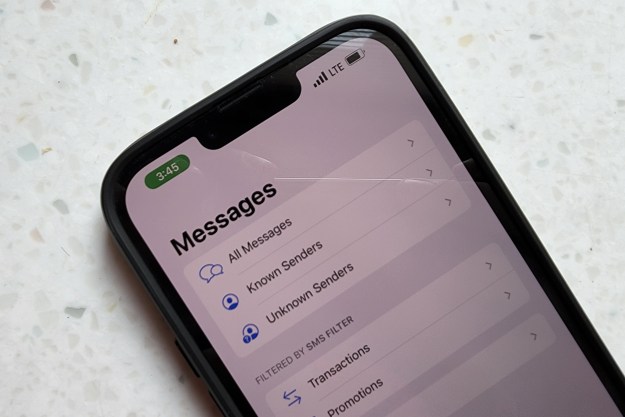 Verizon has announced that it has filed a lawsuit against a group of six individuals and 20 companies, who it alleges tricked people into signing up for a fraudulent premium text messaging service.
Verizon has announced that it has filed a lawsuit against a group of six individuals and 20 companies, who it alleges tricked people into signing up for a fraudulent premium text messaging service.
The suit names Jason Hope and Wayne P. DeStefano among others and their associated companies, including Cylon, Jawa and EyeLevel Holdings. Verizon is seeking an immediate injunction to stop the companies’ activities as well as monetary compensation.
“Among the things the company discovered and that are explained in detail in the lawsuit include the fact that the defendants defrauded Verizon Wireless by misappropriating approved short codes for unapproved ‘shadow’ campaigns that did not comply with Verizon Wireless’ consumer protection and disclosure policies,” Verizon stated in a press release.
Short codes are the industry standard phone numbers that wireless customers can text to sign up for premium services.
Verizon alleges that the scammers gained access to the company’s short codes by setting up legitimate sites, but then used the codes to run illegitimate “shadow campaigns.” Customers who signed up for the premium text services — which promised anything from movie showtimes to video game tips — were not told how much they would be charged. In fact, the premium services added anywhere from $3 to $10 to a customer’s monthly bill.
Traditionally, when customers sign up for a premium text service, Verizon keeps a portion of the monthly fee and passes the remainder on to the third-party company. In this instance, because the accused companies were operating using approved short codes, Verizon wasn’t immediately aware of the fraud.
The suit also alleges that the offending websites were setup to detect the IP addresses of Verizon auditors and re-direct them to innocuous websites, making it even more difficult for the company to tell legitimate websites from the fraudulent. Verizon hasn’t disclosed the exact number of people who were affected by the ploy, but did say the number is “sizeable.”
Verizon has set up a website to reimburse any of its customers who fell victim to the alleged scam.
Editors' Recommendations
- How to schedule a text message on your iPhone
- What is RCS messaging? A briefing on the SMS successor
- How to save text messages on iPhone and Android
- How to recover deleted text messages on iPhone
- How to send a text from email using iPhone, Verizon, and more


